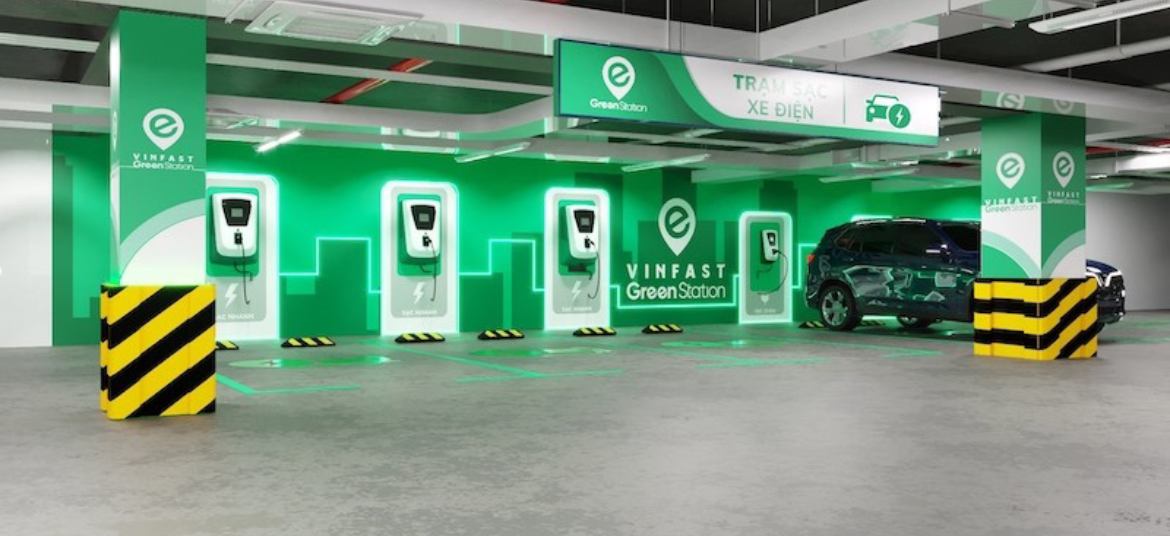China’s loss is Vietnam’s gain even as the ASEAN member is emerging as a key player in EV battery manufacturing, and as a solid alternative in the global supply chain

Emerging from the disruptive impact of COVID-19 that led to a drop in per capita disposable income and had a direct impact on vehicle sales, Vietnam’s automotive industry is witnessing a sharp upward surge, buoyed by the Electric Vehicle (EV) revolution in the country. Even as the country’s GDP continues a steady upward climb since Q4 2021, the Vietnamese battery market is expected to record a solid 7%+ CAGR over the next five years.
With lead-acid and lithium-ion batteries at the apex of the demand pyramid, the growing popularity and sales of electric vehicles is subsequently set to propel into motion a significant growth cycle for the frontrunners of the battery industry. With majority of its batteries being imported until recently, the rise of new EV manufacturing plants and vehicles in the country, such as VinFast’s first EV car announced in 2021, is indicative of the government’s shift in policies and supporting endeavours vis-à-vis developmental technology.
FROM PURPOSE TO POLICY
According to Vietnam Business Forum’s Made-in-Vietnam Energy Plan 2.0, popular sustainable energy solutions such as wind, solar, hydro and lithium-ion battery registered a notable reduction in cost, with the drop accelerating in the past couple of years. This has further sparked a rise in usage of these alternative energy technologies compared to unsubsidized fossil-fuel-based solutions, providing a launch pad for new growth opportunities within the industry – and beyond.
A signatory to 18 active and planned, bilateral and multilateral FTAs, Vietnam’s democratic approach to business is advantageous not only in terms of providing lucrative options to global players but also enabling manufacturing-driven economic growth through sectors as varied as machinery, electronics, medical devices and automotive – a departure from the conventional reliance on imports.
OPTIMISING OPPORTUNITY
Apart from domestic companies amplifying their manufacturing capacities, China Plus One (C+1) strategy is providing a significant momentum to global investors to diversify their investments by opting for an emerging market like Vietnam. Preferential industry-based taxation, low labour costs (touted as South-East Asia’s most competitive labour market) and favourable geographical location are considered as valuable markers.
Impact of China’s fast-evolving social, demographic and political landscape, further intensified by the ongoing effects of COVID-19 in the country has increased tensions with strong counterparts supporting globalisation and disrupted global supply chains. While top notch manufacturing expertise, advanced skill and logistics as well as soaring productivity remain China’s powerful weapons, there is an undeniable shift from China to other ASEAN counterparts, with Vietnam being the prime contender in the EV space.
Vietnam is at the cusp of a bigger, stronger, more substantial shift when it comes to battery manufacturing for the automotive industry. In its quest to play a game of competitive catch up with strong global players and keep up with the demand, things are only looking up for this newly ordained frontrunner in the EV manufacturing industry.
REFERENCES:

Thao Nguyen is ABP’s Country Manager – Vietnam. She is a dynamic leader with over 27 years of experience working for both global and local banks in Vietnam. Over the course of her career Thao has held senior leadership roles at HSBC, Citibank, ANZ, Techcombank and VIB
Stay up to update with our latest news.
Have Us Contact You
